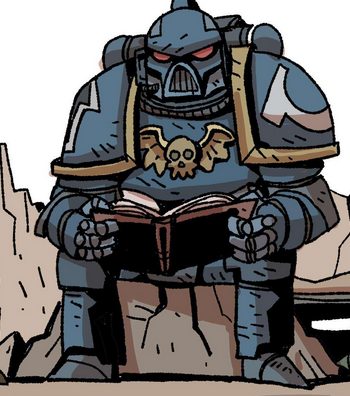

Those look like 3 random people to me. I’m not seeing the caricature. For them to not be caricatures, what would you expect them to look like?
Linux server admin, MySQL/TSQL database admin, Python programmer, Linux gaming enthusiast and a forever GM.


Those look like 3 random people to me. I’m not seeing the caricature. For them to not be caricatures, what would you expect them to look like?


They tried protesting at oil infrastructure, they stopped multiple oil terminals in the UK being used for weeks and caused shortages in various parts of the UK. Hundreds went to prison and everyone forgot about it after a week.
They throw soup at glass, 2 people go to a police station for a few days and people are still talking about it months later.
Unfortunately, they have to exist within the constraints of modern news media, outrage cycles and social media, and that influences their decisions.


Except when they did protests targeted at oil infrastructure, that was still apparently wrong and got far less coverage than much safer stunts like these.


As an outsider looking in that saw the news, was a huge player buff across the spectrum really needed? It’s not terribly normal for a game studio to make their game that much easier all at once.


Led by a man that truly understands logistics. All space lanes lead to Ultramar.


Thanks for the link, it was a very interesting read. While it is disappointing that it’s not actually a collective (assuming this blog post is accurate), having a platform run and owned by 6 creators is still better than YouTube’s governance structure, and still has the advantage in having both the capacity and desire to invest in creators.


An advantage of funding things via a collective like Nebula as opposed to each individual creator managing their own patrons is that new creators can start making bigger, more expensive projects quicker. Even established creators have this advantage, they can take bigger risks on bigger projects with the safety net of a share of the nebula pie.
I don’t think a project like The Prince would exist without Nebula, for example.
Yeah, absolutely, that’s a much more readable summation than what I wrote.
As an aside, I really like the social contract theory. It’s a pretty clean philosophical summation of how the majority of people in tolerant democracies see the world and provides the foundation for it, even if they don’t think about it in formal philosophical terms. That essentially we are implicitly bound by the rules established by previous generations, those that set the rules (both cultural and legal), until such time as we form a political or cultural movement to change those rules. Then, anyone who comes after us is bound by those rules we set until and unless they in turn change them.
EDIT: I guess I should add that in the context of this thread, “be tolerant” is a cultural rule that has developed over the recent past, and thus if you aren’t tolerant there are social repercussions (and in countries with hate speech laws, even legal repercussions) as that is the current rule.
There’s also the social contract resolution to the tolerance paradox. Essentially, the tolerance paradox is that tolerating intolerance erodes tolerance. This means eventually if you allow intolerance to fester, they will seize control and you lose that tolerance.
The social contract resolution is that by being intolerant, you lose your right to be tolerated. This avoids that paradox, but superficially can look like intolerance.
I hope this didn’t end up too much like word salad.
Works for floors!


Spamming Rebuke Death every other turn also completely shatters any difficulty.


The revised core book changes the focus recovery to be 10 minutes for all focus points back


If I squint, I can kinda see the argument for essentially short rest spell recovery. An interesting change, to be sure.
I heavily disagree with making focus points recoverable in combat though. The whole point of them is to be once per encounter, that’s how they’re balanced.
Do I grab them by the bridge bit that sits on their nose
This is the way.


I don’t have a problem with medication/supplements. I personally don’t have a problem with popping a pill once in a while instead of a factory farmed animal taking an injection on my behalf once in a while.


They do in Romania at least. B12 is fat soluble, which makes life much easier.


B12 is actually something that I think about. Not very hard, it’s a once a month pill, but definitely more than protein.


which was me moving my reusable bag to the other side at a low angle.
Seems like a system like that would be easily fooled by confidently moving an item across the scanner and into the baggage area without scanning it.


But how else will we inflict PTSD and permanent physical injury en masse to poor people without options?
Technically yes, but I don’t mean technology as phones/laptops/tablets/etc. Imho, the biggest factor in social isolation is atomization due to bad urban planning. When everything and anything is only accessible by car, you lose any connection with your local neighbourhood and local stores/cafes/etc.
In environments where people walk around the neighbourhood, doing small daily shops, going to local businesses and taking mass transit to work/school/restaurants/bars, then you’re much more likely to interact with people rather than driving around in your social isolation-mobile.
Urban planning can be considered a form of technology, which is why I said technically yes.
EDIT: Oh, another big factor here is the loss of the third place. It still exists in some places (local pubs in British towns, local coffee shop in Portugal, etc), but in places without a socially normal “hangout spot” that is separated from both home and work/school, it’s much harder to meet acquaintances which may in time become friends.